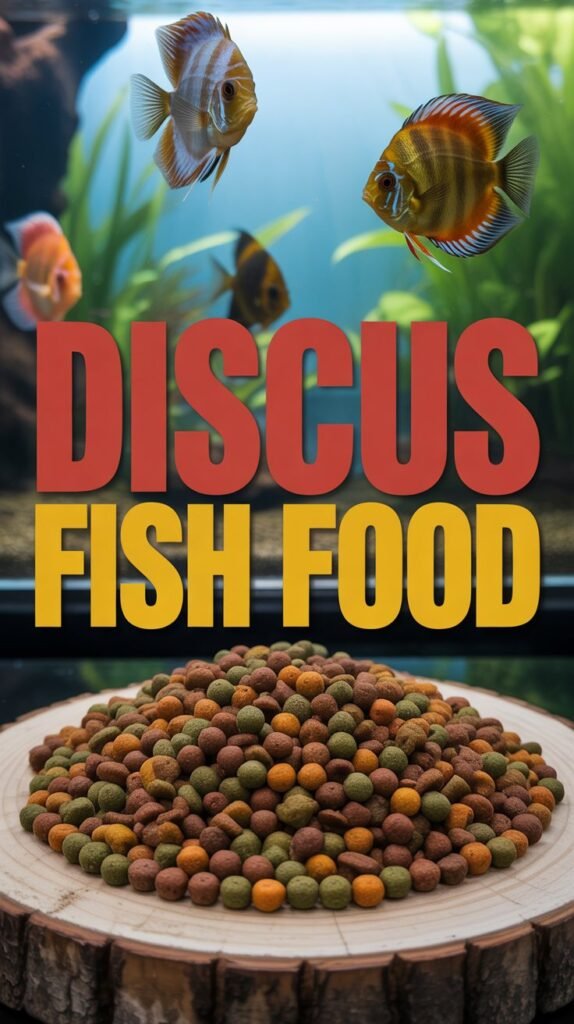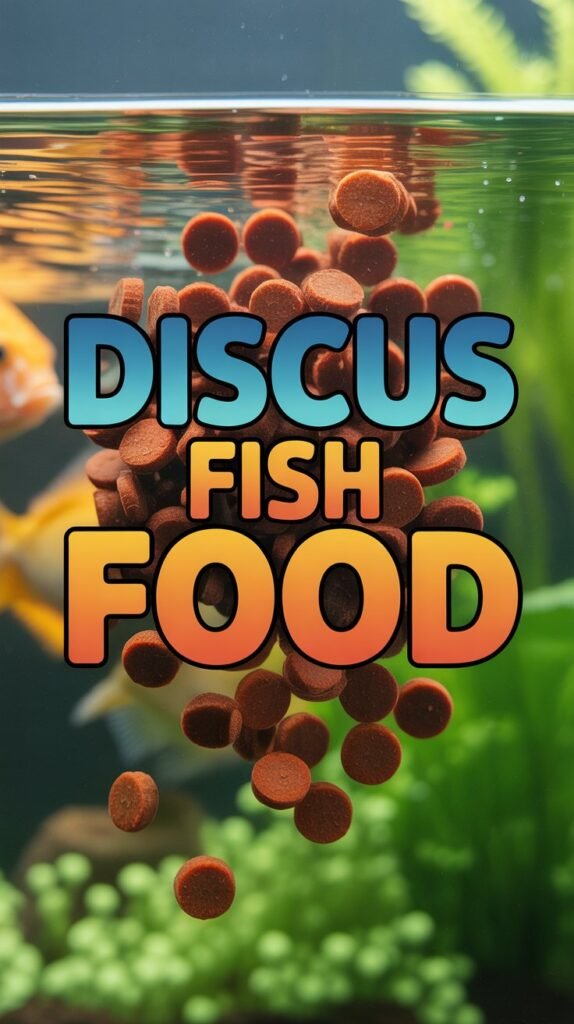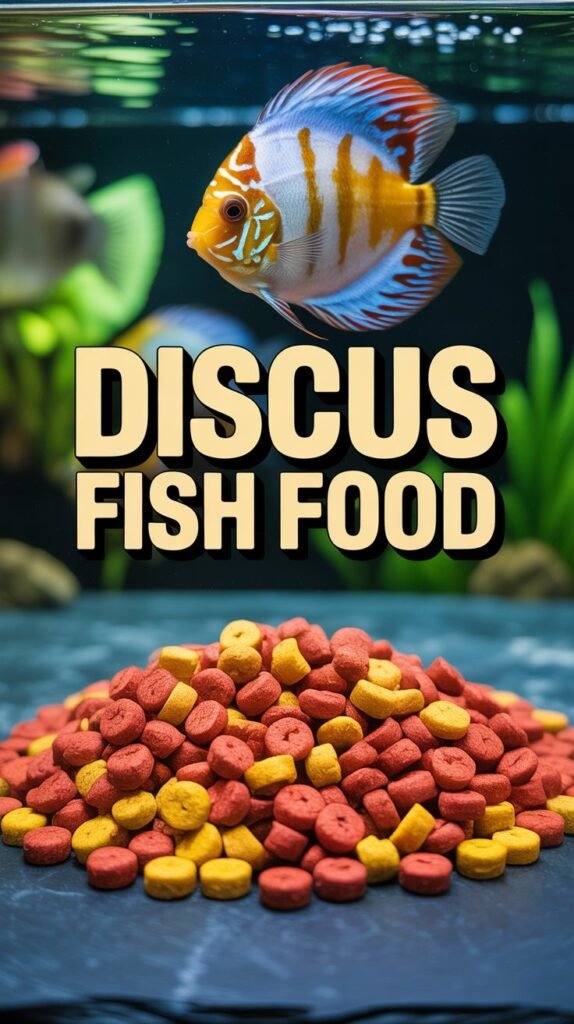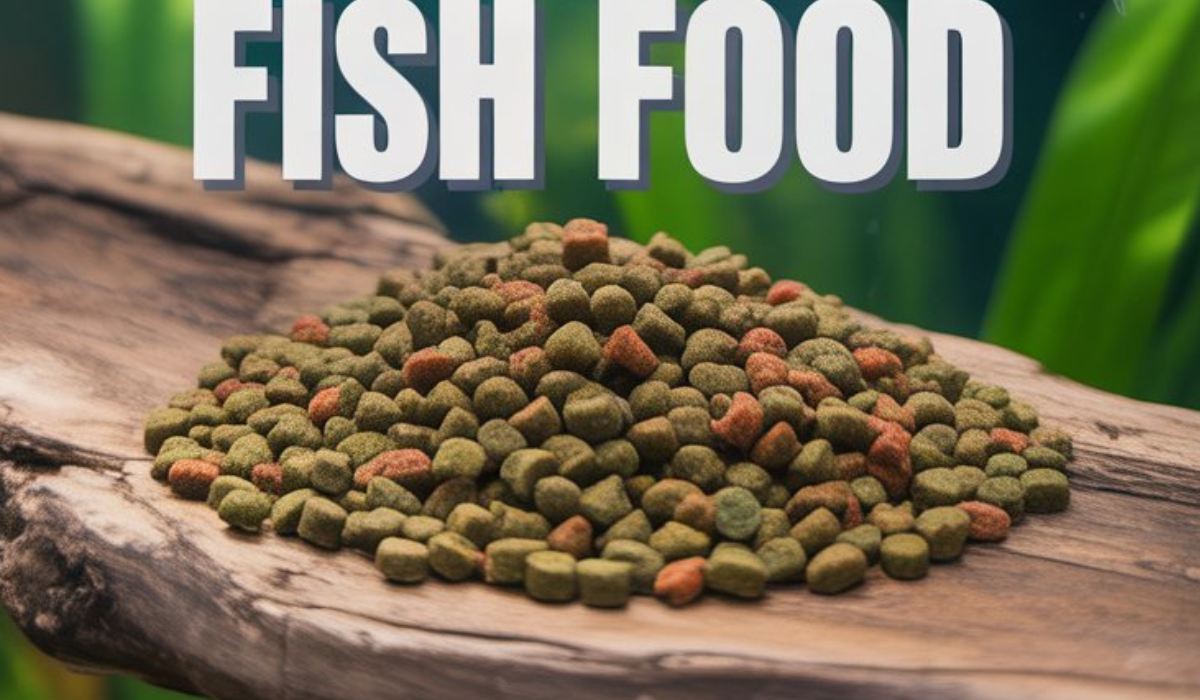Among all freshwater aquarium fish, Discus Fish are often referred to as the “King of the Aquarium” — admired for their regal appearance, graceful movements, and stunning colors. Native to the Amazon River Basin, these tropical beauties are known for their unique dietary requirements. To keep discus fish healthy, vibrant, and active, you must understand the importance of proper nutrition.
Choosing the right Discus Fish Food is crucial, as their diet directly affects their coloration, growth, immune system, and breeding success. Feeding them improperly can lead to stress, poor coloration, stunted growth, and even diseases.
In this detailed guide, you’ll learn everything about feeding discus fish — from the types of food they need, the best feeding schedule, and the right nutrients, to practical feeding tips and mistakes to avoid. Whether you’re a beginner or an experienced aquarist, this guide will help you nourish your discus fish for optimal health and beauty.
Understanding Discus Fish Dietary Needs
Discus fish are omnivores, meaning they eat both plant and animal-based foods in the wild. In their natural Amazon habitat, they feed on small insects, worms, crustaceans, plant matter, and detritus.
However, in aquariums, their diet must be carefully balanced to replicate natural nutrition. A healthy discus diet must include:
- High-quality protein for muscle growth and coloration.
- Essential vitamins and minerals for immunity and vitality.
- Healthy fats for energy and reproduction.
- Fiber for digestive health.
Discus fish are sensitive to diet changes and poor-quality food. Therefore, maintaining consistency and offering a nutrient-rich, varied diet is essential for their long-term health.
Nutritional Requirements for Discus Fish

1. Protein
Protein is the most important nutrient in a discus diet. It supports growth, body maintenance, and coloration. Juvenile discus require around 45–55% protein, while adults thrive with 35–45%.
Sources of high-quality protein include:
- Bloodworms
- Brine shrimp
- Beef heart
- Krill
- Fish meal
- Spirulina (plant-based protein)
2. Vitamins
Vitamins strengthen the immune system and improve color intensity. Essential vitamins include:
- Vitamin C: Boosts immunity and tissue repair.
- Vitamin A: Enhances skin health and coloration.
- Vitamin D: Supports bone development.
- Vitamin E: Promotes reproduction and vitality.
3. Minerals
Minerals like calcium, phosphorus, potassium, and magnesium help maintain strong bones, nerve function, and osmoregulation.
4. Fats
Healthy fats are energy sources for discus fish, especially during breeding. However, too much fat can lead to liver issues. An ideal discus diet should contain 4–6% healthy fat.
5. Carbohydrates
Although not a major component, moderate carbohydrate content supports energy levels and digestive function.
Types of Discus Fish Food
There are various types of discus fish food available in the market and natural options you can prepare at home. Let’s explore each in detail.
1. Frozen and Live Foods
Frozen and live foods are closest to the discus’s natural diet. They are rich in protein and highly palatable.
a. Bloodworms
Bloodworms are a discus favorite, packed with protein and easy to digest. However, they should be given in moderation to prevent bloating or fatty liver disease.
b. Brine Shrimp
A nutritious food rich in protein and carotenoids that enhance color. Live or frozen brine shrimp are perfect for both juvenile and adult discus.
c. Daphnia
A great source of fiber that prevents constipation. Ideal for cleansing the digestive system after feeding rich foods.
d. Tubifex Worms
Extremely protein-rich but must be cleaned or sterilized properly, as they can carry parasites.
e. Beef Heart Mix
One of the most popular discus foods, beef heart provides high protein and supports rapid growth. It can be mixed with vitamins, vegetables, and shrimp to create a balanced meal (more details below).
2. Pellet and Granule Foods
High-quality pellets or granules specifically formulated for discus are convenient and nutritionally complete. They are ideal for daily feeding and maintaining consistent nutrition.
When choosing pellets, ensure they:
- Contain 40–50% protein.
- Include natural color enhancers like spirulina or astaxanthin.
- Sink slowly, allowing discus to feed comfortably.
3. Flake Food
While flake food is suitable for small discus or juveniles, it is less effective for adults. It’s best used as a supplement rather than a staple diet.
4. Freeze-Dried Foods
Freeze-dried foods (like bloodworms or brine shrimp) are safer than live foods because they are sterilized. They retain nutrients and are convenient for daily feeding.
5. Homemade Discus Fish Food

Homemade food allows complete control over ingredients and quality. The most popular is the beef heart mix, which combines protein and essential nutrients.
Homemade Beef Heart Mix Recipe
Ingredients:
- 500g beef heart (trimmed of fat)
- 100g shrimp
- 1 carrot (boiled)
- 1 spinach leaf (blanched)
- 1 garlic clove
- 1 multivitamin capsule
- 1 teaspoon spirulina powder
- 1 tablespoon gelatin (binder)
Instructions:
- Clean the beef heart and remove all fat and veins.
- Grind all ingredients into a fine paste.
- Mix in the gelatin to bind the mixture.
- Spread thinly in plastic bags and freeze.
- Break small cubes and feed as needed.
This homemade mix provides balanced nutrition, boosts color, and promotes healthy growth.
Feeding Schedule for Discus Fish
Discus fish prefer multiple small meals rather than one large feeding. Their metabolism benefits from regular, controlled feeding.
Recommended Feeding Frequency:
- Juveniles (under 6 months): 5–6 times per day
- Young Adults: 3–4 times per day
- Adults: 2–3 times per day
Feed only as much as they can consume in 2–3 minutes to prevent water pollution. Uneaten food should be removed immediately to maintain water quality.
How to Feed Discus Fish Properly
- Feed Consistently: Discus thrive on routine. Feed them at the same times daily.
- Variety is Key: Rotate between pellets, frozen, and live foods to ensure balanced nutrition.
- Avoid Overfeeding: Overfeeding leads to obesity, poor digestion, and water pollution.
- Observe Eating Behavior: Healthy discus eagerly approach food. Loss of appetite can indicate illness or poor water conditions.
- Soak Dry Foods: Pre-soak pellets in tank water to prevent bloating.
- Clean Feeding Area: Siphon uneaten food to prevent bacterial buildup.
Feeding Discus Fry and Juveniles
Discus fry and juveniles have different nutritional needs compared to adults. They require high-protein, easily digestible food for growth.
Stage 1: Newly Hatched Fry
For the first few days, fry feed on their parents’ mucus secretions. Avoid external feeding during this stage.
Stage 2: 1–2 Weeks Old
Start feeding freshly hatched baby brine shrimp (BBS) 3–4 times a day. They are high in protein and small enough for fry to consume.
Stage 3: 3–6 Weeks Old
Gradually introduce finely crushed flakes or micro-pellets, still supplementing with brine shrimp.
Stage 4: 6+ Weeks
Introduce a wider variety — beef heart paste, crushed pellets, or frozen foods. Maintain frequent feeding for steady growth.
Color Enhancement Through Diet

One of the most attractive features of discus fish is their vivid coloration. Diet plays a major role in enhancing these colors naturally.
Natural Color-Enhancing Foods:
- Spirulina: Rich in carotenoids that intensify blue and green tones.
- Krill and Shrimp: Contain astaxanthin, boosting red and orange hues.
- Paprika and Carrots: Natural beta-carotene sources for brighter colors.
- Beef Heart Mix: Improves overall pigmentation when combined with vitamins.
Consistent feeding of color-enhancing foods will make your discus appear more vibrant and lively.
Common Feeding Mistakes to Avoid
1. Overfeeding
Excess food leads to poor water quality, ammonia spikes, and stress. Feed only what they can eat in a few minutes.
2. Poor Quality Food
Cheap or stale foods may contain fillers, leading to nutritional deficiencies and reduced immunity.
3. Lack of Variety
Feeding the same food daily causes boredom and nutritional imbalance.
4. Not Cleaning After Feeding
Uneaten food decomposes quickly, fouling the water and encouraging harmful bacteria.
5. Sudden Diet Changes
Abruptly switching food types can upset the digestive system. Always transition gradually.
Importance of Clean Water During Feeding
Discus fish are highly sensitive to water quality. Even the best food can harm them if leftover debris degrades water conditions.
Tips for Maintaining Water Quality:
- Use a sponge filter or canister filter for efficient cleaning.
- Perform 25–30% water changes weekly (or more if feeding heavily).
- Siphon uneaten food within 15 minutes.
- Avoid feeding during cleaning times or before turning off filters.
Clean water ensures that discus efficiently absorb nutrients and stay disease-free.
Best Feeding Practices During Breeding
During breeding, discus fish require a nutrient boost to encourage spawning and support egg health.
For Breeding Pairs:
Feed protein-rich foods such as:
- Beef heart
- Bloodworms
- Brine shrimp
- Spirulina-enriched pellets
Increase feeding frequency slightly, but ensure the tank remains clean.
For Frying Females:
After egg-laying, provide easily digestible foods and vitamin-rich options to replenish energy.
Transitioning Discus Fish to New Foods
Discus fish can be picky eaters, especially when switching from live foods to pellets. Here’s how to make the transition smooth:
- Mix small portions of the new food with their current diet.
- Gradually increase the ratio of new food over 7–10 days.
- Use attractants like garlic juice to stimulate appetite.
- Feed smaller amounts more frequently to encourage sampling.
Patience is key — eventually, discus adapt to the new diet.
Benefits of a Balanced Discus Fish Diet
- Stronger Immune System: Proper nutrition prevents diseases and infections.
- Improved Coloration: Natural pigments become brighter and more defined.
- Faster Growth: Juveniles grow evenly without deformities.
- Enhanced Breeding Success: Healthy fish spawn more readily.
- Longer Lifespan: Balanced diets promote vitality and longevity.
Troubleshooting Common Feeding Issues
1. Discus Refuse to Eat
- Check for stress factors (new tank mates, poor water quality, temperature fluctuations).
- Try offering live or frozen food to reignite appetite.
2. Bloating or Floating
- Caused by overfeeding or dry pellets. Soak dry food before feeding and include fiber-rich foods like daphnia.
3. Aggressive Feeding Behavior
- Ensure all discus get food by spreading it evenly or using feeding cones.
Conclusion
Feeding Discus Fish properly is both an art and a science. Their health, color, and behavior all depend on a balanced, nutrient-rich diet. By providing a mix of live, frozen, pellet, and homemade foods — and feeding them with care — you can ensure they thrive in your aquarium for years to come.
Remember, quality food means quality health. Always prioritize fresh, high-protein, and well-balanced diets while maintaining pristine water conditions. The result will be a vibrant, peaceful tank filled with stunning discus that truly live up to their royal reputation.
Frequently Asked Questions (FAQs)
1. What is the best food for discus fish?
High-quality protein foods like beef heart mix, bloodworms, and specialized discus pellets are ideal. A varied diet ensures balanced nutrition.
2. How often should I feed my discus fish?
Feed adults 2–3 times daily and juveniles 4–6 times daily. Offer only what they can eat in 2–3 minutes.
3. Can discus fish eat flakes?
Yes, but flakes should only be a supplement. Pellets or frozen foods are more nutritious and suitable for their diet.
4. Are bloodworms good for discus?
Yes, bloodworms are an excellent protein source but should be fed in moderation to prevent fatty liver.
5. How can I enhance my discus fish’s color naturally?
Feed spirulina, krill, and shrimp — they contain carotenoids that enhance red, blue, and orange colors.
6. Can I feed my discus homemade food?
Absolutely! A homemade beef heart mix with vegetables and vitamins is one of the best options for growth and color.
7. Why is my discus fish not eating?
Loss of appetite may indicate stress, poor water conditions, or illness. Test water parameters and offer favorite foods like brine shrimp.
8. Can discus fish eat vegetables?
Yes, blanched spinach, peas, or zucchini can provide essential vitamins and fiber.
9. Should I feed discus at night?
It’s best to feed them during daylight hours when they are active and alert.
10. How do I prevent overfeeding?
Feed small portions multiple times daily and remove leftovers within 10–15 minutes.
In summary, a balanced diet filled with high-quality discus fish food — combined with good feeding habits and clean water — is the key to raising healthy, colorful, and happy discus fish. Proper nutrition brings out their best colors, strengthens their immunity, and ensures that the “Kings of the Aquarium” truly reign supreme.

